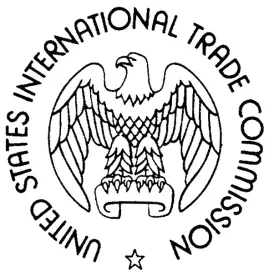On Sept. 11, 2014, the U.S. International Trade Commission released Digital Trade in the U.S. and Global Economies, Part 2, a report that highlights the significant trade impact of digital and Internet-based industries. The 331-page report also identifies potential obstacles to cross-border digital trade, including inadequate intellectual property rights enforcement and privacy regulation.
The ITC’s report, requested by the Senate Finance Committee, is based on case studies and a survey sent to nearly 10,000 U.S. businesses in “digitally intensive” industries, such as online publishing, digital communications, and online retailing.
Among the report’s notable findings:
-
U.S.-based digitally intensive firms sold $935.2 billion in products and services and purchased $471.4 billion over the Internet in 2012. Thirty-one percent of those sales and 10.5 percent of those purchases were delivered entirely over the Internet, rather than physically.
-
Digitally intensive U.S. businesses exported $222.9 billion in products and services online, and imported $106.2 billion.
-
Digitally intensive small- and medium-sized enterprises comprised one-fourth of the total online sales and one-third of the total online purchases.
-
The efficiencies created by digital trade increased U.S. wages by between 4.5 percent and 5 percent, and increased U.S. total employment by up to 2.4 million full-time equivalents.
The ITC estimates that removing foreign barriers to digital trade in digitally intensive industries would create an increase of .1 percent to .3 percent in U.S. Gross Domestic Product in 2011, and increase total U.S. employment by up to .3 percent. Survey respondents identified the following as obstacles to international digital trade:
-
Intellectual property rights infringement: U.S. businesses are concerned about online intellectual property rights violations, including cybersquatting and other misuse of a company’s brand, online copyright infringement, theft of trade secrets, and patent infringement. Companies told the ITC that China is the top location for obstacles related to intellectual property rights, followed by the European Union, Russia, Canada, and Mexico.
-
Data privacy and protection requirements: U.S. firms are particularly concerned about the European Union’s stringent data privacy requirements. The EU prohibits the export of its residents’ personal data to foreign companies that are not bound by “adequate” data protection requirements, either through privacy laws, contracts, corporate rules, or voluntary compliance programs, such as the Safe Harbor Framework that is enforced by the Federal Trade Commission. The ITC reports that many U.S. digitally intensive businesses are unsure about how to comply with the Safe Harbor Framework’s requirements, and that “strict privacy regulators in some EU countries have found that Safe Harbor compliance does not satisfy data protection requirements.”
-
Localization requirements: Businesses report that localization requirements — which favor a country’s domestic companies — present a barrier to online trade. Respondents were particularly concerned about laws or proposed legislation that require Internet companies to store personal data about a country’s residents in that country. Compliance with such requirements “can be expensive, time-consuming, and disruptive to business planning and operations,” the ITC wrote.
-
Legal liability rules: Some respondents stressed “the importance of clear legal frameworks to govern the rights and responsibilities of online intermediaries and others online,” such as section 230 of the Communications Decency Act and the Digital Millennium Copyright Act’s safe harbor provisions.
-
Censorship: U.S. firms were particularly concerned about steps that the Chinese government has taken to censor online content (such as blocking IP addresses of certain websites). Respondents also said that other countries, including Russia, Saudi Arabia, Egypt, Turkey, Vietnam, and the United Arab Emirates, have imposed some censorship measures that create barriers to online trade.
-
Customs requirements: U.S. companies told the ITC that some countries’ customs laws and procedures change frequently without transparency, and that “government actions can be punitive when violations are found, notwithstanding the lack of clear notice.”



 />i
/>i
